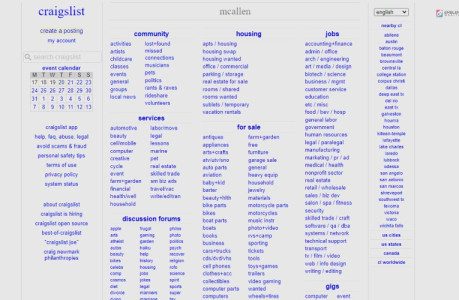How Ai Changed Business Strategies In e-Learning Services

Artificial Intelligence (AI) has revolutionized e-learning, reshaping traditional approaches. This article explores AI’s impact on personalized, created, delivered, and secured educational content.
AI in e-learning tailors content to individual needs, utilizing algorithms that understand unique learning patterns. It combines machine intelligence with human creativity, expanding content possibilities.
Delivery methods have evolved, transforming into interactive platforms resembling live classrooms. AI ensures content security through robust encryption, safeguarding intellectual property.
AI’s advent in e-learning unlocks innovative possibilities, bridging technology and education. It promises adaptive, personalized learning for every seeker of knowledge.
Understanding AI’s Role in e-Learning Services
E learning or electronic learning is a type of online education system that uses digital tools and technologies. Through these tools and technologies, they provide various educational content. This e learning can be used in many settings, such as corporate training, skill development courses, or even in academic education.
The latest technology, AI or artificial intelligence, plays a very significant role in e learning services. AI can quickly adapt students’ learning experiences, their needs, pace and their learning styles. This helps AI to customize the courses and contents.
Other than that, AI can also be helpful in providing real-time feedback, predicting learning trends, creating and translating training content, or even identifying at-risk learners.
Moreover, the successful integration of AI along with human expertise ensures a very high-quality educational experience.
Market Overview Of Artificial Intelligence in Learning
Artificial intelligence has been bringing a drastic change in the e learning industry for the past few years. And the result? Well, it slowly started to show, such as:
- Over 93% of global companies are currently switching to the e learning field.
- 77% of the companies are focusing on implementing AI in their operation.
- Almost 42% of the companies have witnessed increased revenue once they have introduced e learning.
The use of artificial intelligence or AI in education is currently rising and there is no sign of slowing down.
- AI in education is projected to reach $17.8 billion in the global market by 2027.
- Almost 47% of the respondents mainly believe that e-learning has been helpful and easily accessible for them.
Essential AI-Driven Business Strategies in e Learning
AI has greatly transformed business plans associated with e-learning into personal and efficient ones.
As AI is applied in learning, every e-learning service can provide individualized learning, as it adjusts content by the needs and progress of everyone. Personalization helps ensure that learners receive the most pertinent material, thus increasing learners’ engagement and results.
AI automates administrative work on assignments and feedback so that teachers can spend more time interacting with students and providing support.
Predictive analytics also help businesses identify problems before they even happen, thus showing improvements in retention and completion rates.
Chatbots and virtual assistants are also changing the face of the way learners interact with platforms, providing 24/7 support and guidance. AI-based content creation tools enhance the development of interactive, engaging materials. Such innovations don’t only make e-learning more effective but also allow businesses to scale quickly and stay competitive in a very digital world. AI is transforming online learning, making it more efficient, more personal, and easier to access.
The Impact of AI on Business Models in e Learning
Even though there are many organizations that are yet to incorporate AI, but believe me! AI is going to be the big thing in e learning. The role of AI is going to play big from kindergarten to higher education or even for corporate training.
Personalization And Adaptive Learning
Adaptive learning and artificial intelligence or AI can be used to create a very personalized e learning experience for the students.
Adaptive Learning Algorithms
AI has had a significant impact on e-learning, and adaptive learning algorithms are the reason for this. These algorithms employ AI to look at the habits and preferences of each learner.
Education material is therefore continuously adjusted to take into account each student’s distinct learning style, aptitude, and speed. To keep learners engaged and enhance their learning experience, AI, for example, adjusts the pace or level of difficulty if a learner shows mastery of a subject.
Getting an education is not only about going to classes, writing that essay, or completing your homework. It is about getting help you make your study and learning more about yourself too. About what is the most efficient way to learn, about your favorite topics, about your values.
You can check this site which offers a writing service and management assignment help EduBirdie to discover more about adaptive learning. And not only about this but about how AI can indeed help with personalizing the content so that it matches your needs and preferences.
User Experience Enhancement
My educational journey has been drastically altered by the integration of AI into e-learning. Thanks to AI-driven features integrated into platforms, learning environments are now dynamic and genuinely engaging. These improvements—such as customized recommendations, quick feedback loops, and intuitive user interfaces—have greatly increased my engagement and memory capacity.
I see an AI-powered personalized learning environment that is specifically designed to satisfy my requirements. Imagine getting content recommendations that are precisely in line with what each student needs. In addition, this scenario includes instant quiz feedback, which enhances learning by promptly offering solutions and direction as needed.
Intelligent Content Creation And Delivery
Here’s precisely how AI helps the e learning services to create intelligent content and further deliver them; read on…
Automated Content Generation
How I develop e-learning content has been completely transformed by artificial intelligence. The most recent developments in AI have led to the replacement of laborious manual operations with very intelligent automated procedures.
These incredible artificial intelligence algorithms produce a variety of instructional resources, including tests, engrossing films, realistic simulations, and customized study guides. Best feature? They achieve this while maintaining high standards and saving a great deal of time and work while creating educational products.
Predictive Analytics for Content Recommendations
Imagine receiving personalized training from an AI-powered personal learning counselor. It’s similar to having a reliable friend who genuinely gets your interests and preferred methods of learning. This turns learning into a fun experience and helps students remember what they’ve learned.
This clever program adjusts its advice according to your interests and preferred method of learning. It’s as though your virtual learning environment handpicks recommendations only for you, providing content that precisely suits your learning style. Advanced machine learning may achieve this level of customization by skillfully recognizing your preferences and creating a learning environment that seems like it was made just for you.
Data Security And Learning Analytics
Data security and learning analytics: these two are critical e learning platforms that can help to improve the overall quality of learning as well as the effectiveness of the training courses. Read on…
Ensuring Data Privacy
Data security is critical in today’s digital world, particularly when it comes to e-learning platforms. In my opinion, AI acts as a superhero, protecting my private data. It makes use of techniques like data masking, restricting access to only authorized individuals, and encoding our data into formats that are unintelligible to outsiders. These preventative actions strengthen my data and provide a strong barrier against any malevolent efforts to compromise e-learning platforms.
Learning Analytics for Performance Improvement
Artificial intelligence (AI) systems, equipped with intelligence, delve deeply into analyzing how I learn. Through these tools, educators and administrators gain extensive insights into my classroom performance.
They meticulously scrutinize not just my understanding and engagement but also delve into my preferred learning styles. With access to an abundance of information, these systems enhance the quality of my online training. It feels akin to having a dedicated personal coach who intimately understands my individual requirements, ensuring highly effective and personalized learning experiences tailored specifically for me.
AI’s Influence on e-Learning Platforms’ Operational Efficiency
Artificial intelligence is capable of enhancing the interaction between learners and teachers in an online learning environment. Through AI, it is possible to provide personalized learning experiences, automate tasks, and further offer feedback to the students.
These AI syste in e learning also improve engagement or the communication channels, increase satisfaction, and further improve learner-quality outcomes.
Ethical Considerations and Challenges of AI in e-Learning
AI has modified how corporations perceive e-learning, but it also poses ethical issues. The following are the important matters to think about:
Data Privacy: AI in e-learning uses personal information to make content better for each learner. It’s very important to keep this information safe and use it properly to protect the privacy of learners.
Bias in Algorithms: The AI system might unknowingly present bias since the data used in training. This means that a certain group of learners will undergo biased learning experiences or results.
Job Displacement: Some will fear job loss for teachers or support staff in companies that provide online learning if AI is used to grade content or even make it.
Transparence: Students must know how much of their data AI uses in the classes they are taking and how it collects this information; hence, they gain confidence in the system.
Even with these challenges, AI keeps pushing forward in e-learning, making it more efficient and personalized for learners.
Conclusion
Artificial Intelligence has significantly reshaped my e-learning journey. Its impact can be seen in the bolstered data security, deeper insights into learning behaviors, and the creation of more tailored learning spaces. I envision a sweeping transformation brought about by AI. This incredible technology not only enhances intelligence but also streamlines the creation of educational materials, revolutionizing how I learn.
I’m excited about the limitless possibilities! Many brilliant minds, driven by a quest for innovation, are delving into cutting-edge AI algorithms to elevate online learning. Their pursuit? To infuse AI’s incredible potential into the realm of online education, aiming to craft an immersive and captivating learning experience for students like me.
FAQs
How is artificial intelligence revolutionizing how learning experiences are personalized for each unique learner?
Artificial intelligence (AI) can tailor content to each individual’s unique learning style and speed by using adaptive learning algorithms. This results in a personalized learning experience.
What proactive measures does artificial intelligence take to improve data security in online learning settings?
By using a range of security measures, including encryption, more robust authentication processes, and the deft use of data anonymization techniques, artificial intelligence (AI) fortifies e-learning systems and shields vital learner data from looming security risks.
In what ways may learning analytics technologies driven by artificial intelligence aid educators?
With its ability to provide comprehensive insights into students’ academic progress, AI-powered learning analytics is a fascinating lens. Teachers can modify their teaching strategies and design personalized learning experiences that are linked to higher levels of engagement and comprehension by using these discoveries as guiding lights.
To what degree is predictive analytics important when it comes to e-learning platforms?
Predictive analytics, a vital part of AI-driven systems, gives consumers access to a multitude of personalized content selections that have been carefully selected based on their individual learning preferences. A greater pool of information is retained and user interaction is increased by this tailored approach.
What prospects for the growth of the e-learning sector does artificial intelligence offer?
A highly inventive future is hinted at by the direction of AI development. Offering an array of enhanced features and dynamic modifications, it is poised to reach unprecedented heights in the realm of adaptive e-learning services.
Read Also:



























Leave A Reply